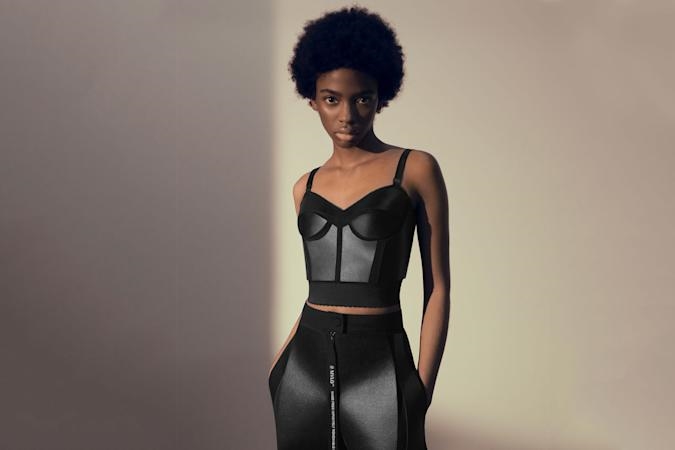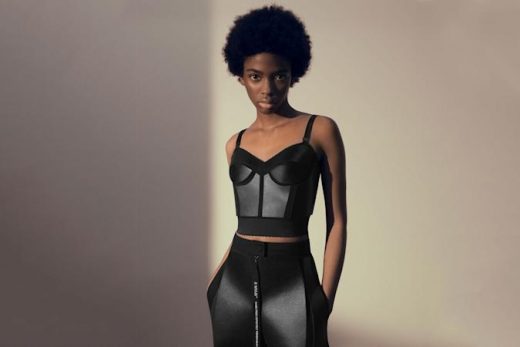Stella McCartney shows off the world’s first clothes made from mushroom leather
Stella McCartney shows off the world’s first clothes made from mushroom leather
Mylo’s Mycelium Leather is a sustainable alternative to plastic-made artificial leather.


Stella McCartney is today showing off its first set of clothes made from a new form of artificial leather; Mylo’s Unleather, a mycelium leather created by startup Bolt Threads. The material, culled from the root system of fungi, promises to behave, and look, like animal leather, with a fraction of the environmental cost. The outfit, a two-piece bustier top and trousers, use panels of recycled nylon attached to panels of Mylo, marks a step into a whole new world of sustainable fashion. Unfortunately, this first outfit isn’t available to buy, but points to the direction McCartney is looking to take her wares in the near future.
As an animal product, leather is unsuitable for use by some religious groups, as well as vegans and vegetarians. For decades, companies have produced artificial substitutes which can be used for fashion, luggage and surface coverings — including car interiors, furniture and book bindings. But this process has come under greater scrutiny in recent years since most forms of artificial leather are made from oil-derived plastics.
A number of companies, including McCartney, Adidas, LuluLemon and the French fashion house which owns Saint Laurent, Balenciaga and Gucci, have all signed up with Bolt to use Mylo. McCartney’s first work with Mylo took place in 2018, when she designed a version of her Falabella bag in the material, which went on display at the V&A Museum. Hermés, meanwhile, is working with another company working in a similar field, MycoWorks, on their own alternative to leather, dubbed Rishi. That partnership has already produced the Victoria Bag, a piece of luxury luggage you probably can’t afford.
But where the world of high fashion leads, hopefully the mass-market will follow, and as these companies get used to working with artificial leather, the greater their adoption. That should mean a reduction in the volume of plastic-leather goods — which are frequently very fragile — in favor of something sturdier, but also guilt-free.
(17)


